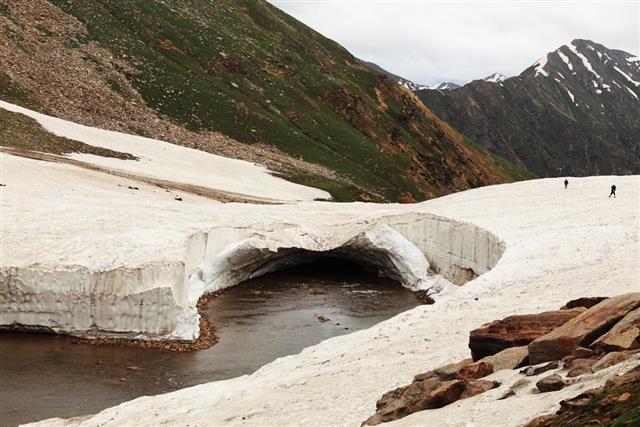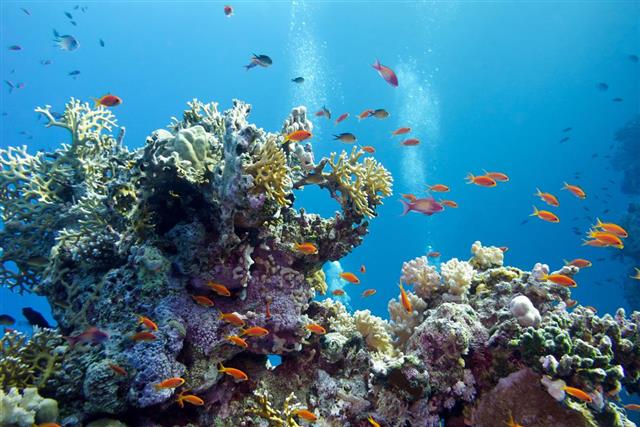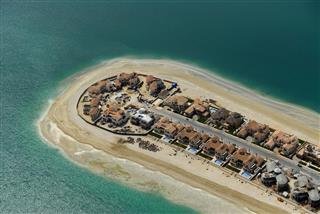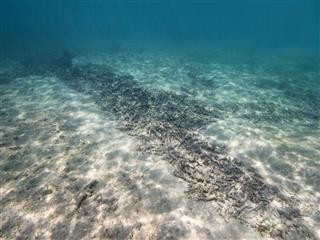
With so many potential threats to coral reefs, its decline has become a global concern in the last few decades. Though natural threats are also identified, much of the negative impacts are contributed by human activity.
Coral reefs are hard, stony structures found underwater in the shallow marine waters. They are formed by skeletons of polyps and their calcium carbonate deposition, which, over a time, grow and extend into larger areas of the marine biome. They are the biggest living structures on earth. They require a balanced water chemistry for growth, in terms of adequate light, temperature, nutrients, and other factors. Any changes in the required conditions affect their survival.
Being considered as the rainforest of the sea, you can imagine the importance of these reefs in the marine ecosystem. They play a crucial role in balancing the marine environment and harbor sheltering place for a variety organisms. Other than serving as a home for coral plants and animals, they are some of the most attractive tourist sites. However, the major issue is potential threats to them, worldwide, both natural and man-made, which are collectively leading to the rapid decline of the reefs.
Natural Threats
The marine components, including coral reefs, are exposed to devastating natural events. These disturb the growth requirements of corals, at times, killing some of the colonies. When we say natural threats, it refers to the environmental and weather effects. Factors like strong waves and storms, often cause breaking and fragmentation of the reefs. However, they do not kill the colonies directly. So, the reefs recover and repair with time.
Low tides expose these reefs to harmful rays of the sun, leading to death of the colonies. Another natural threat to them is warm ocean currents (El Nino), which result in increased water temperature and dilution of marine water. Predation by fish and other organisms also contribute to decline. Their location is coastal areas and shallow water make them more prone to destructive natural events.
Human Threats
According to coral conservation reports, about 10 percent of the reefs are damaged to such an extent that they cannot recovered. From the remaining, approximately 30 percent are on the verge of dying. If the present threats continue for the coming years, more than 60 percent of the reefs will vanish by 2050.
Ocean Water Pollution
One of the leading threats to the Great Barrier Reef and other reefs of the world, is pollution of ocean water. Every year gallons of oils, pesticides, fertilizers, and sewage, contaminate the oceans. All these agents cause water pollution, changing the marine water chemistry. Agricultural wastes result in increasing growth of algae, which in turn reduces light availability to corals.
Global Warming Effects
Increase in carbon dioxide levels and other global warming aspects, lead to a rise in the ocean water temperature. Corals are extremely sensitive to temperature and an elevation of the same, leads to their bleaching (expelling algae by polyps). Also, carbon dioxide gets dissolved in ocean water, turning water acidic.
Coastal Development Projects
If you have studied coral reef information, you might be already aware that they are adapted in the shorelines. One of the major threats to them is unchecked development projects undertaken in the coastal areas. These cause sedimentation, pollution, and temperature fluctuation, thus posing a threat to their existence.
Coral Mining and Exploitation
Corals are sold as specimens, used in making jewelry, used for making bricks, and other construction works. Besides these, reefs are often exploited for the production of personal care and health care products.
Fishing Activities and Tourism
Fishing techniques like blast fishing and cyanide fishing are major threats to the reefs in the Caribbean and have negative effect on the coral population. In addition to this, tourist centers and resorts contribute wastes to the nearby coastal areas, which slowly poison the population.
On a concluding note, damages caused by natural threats to coral reefs are minimal and can be recovered in due time. In short, the most concerning issue is human activity that poses hazardous effects to the reefs. So, it is high time that we devise some effective ways of saving these important marine ecosystems.









